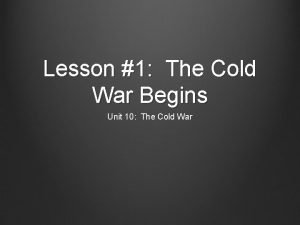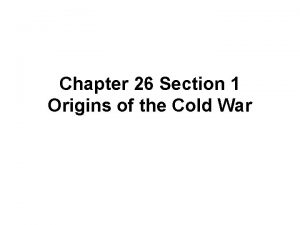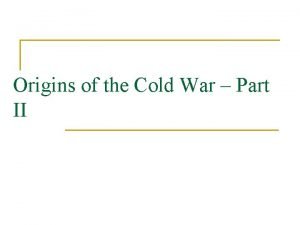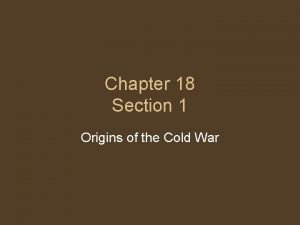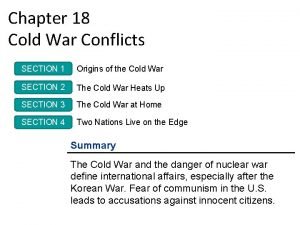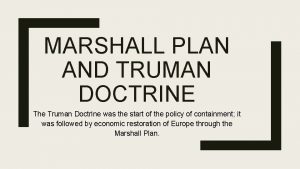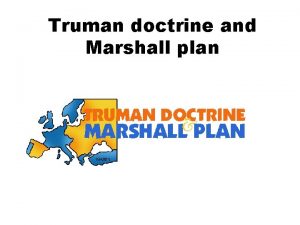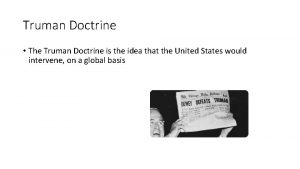The Truman Doctrine Origins of the Cold War




- Slides: 4

The Truman Doctrine Origins of the Cold War and Containment Policy

1946 ● Tensions between Stalin and Truman during the Potsdam Conference regarding each side’s influence over occupied nations after the war. ● Concern over Soviet reluctance to rapidly withdraw forces from Eastern Europe and Iran. ● Winston Churchill’s “Iron Curtain” speech George Kennan, U. S. ● U. S. concern that Greece, embroiled in a civil war after Germany’s withdrawal and defeat, would fall diplomat and author of the “Long Telegram”, report under Communist control, followed closely by about the ideological & neighboring, and long-time rival, Turkey. security motives of the USSR. This report was influential in creating the U. S. policy of Containment against Soviet influence in foreign

March 12, 1947 - The Truman Doctrine: Public speech by Truman outlining a commitment by the United States to provide economic and military aid to Greece and Turkey, for the purposes of preventing both countries from falling to Soviet influence. Considered to be the start of the Cold War and the beginning of containment policy. ● Pledged to “support free people who are resisting attempted subjugation by armed minorities or by outside pressures. ” ● Sent $400 million to the region. In 1952, both Greece and Turkey joined the North Atlantic Treaty Organization (NATO).

Long-term Impact of the Truman Doctrine ● Became the unofficial U. S. policy for countering Communist influence throughout the Cold War. ● Signalled the first of a series of moves designed to halt Soviet influence in Europe. ● Influence in the creation of NATO and the Marshall Plan for restoring the economies of post-war European nations.
